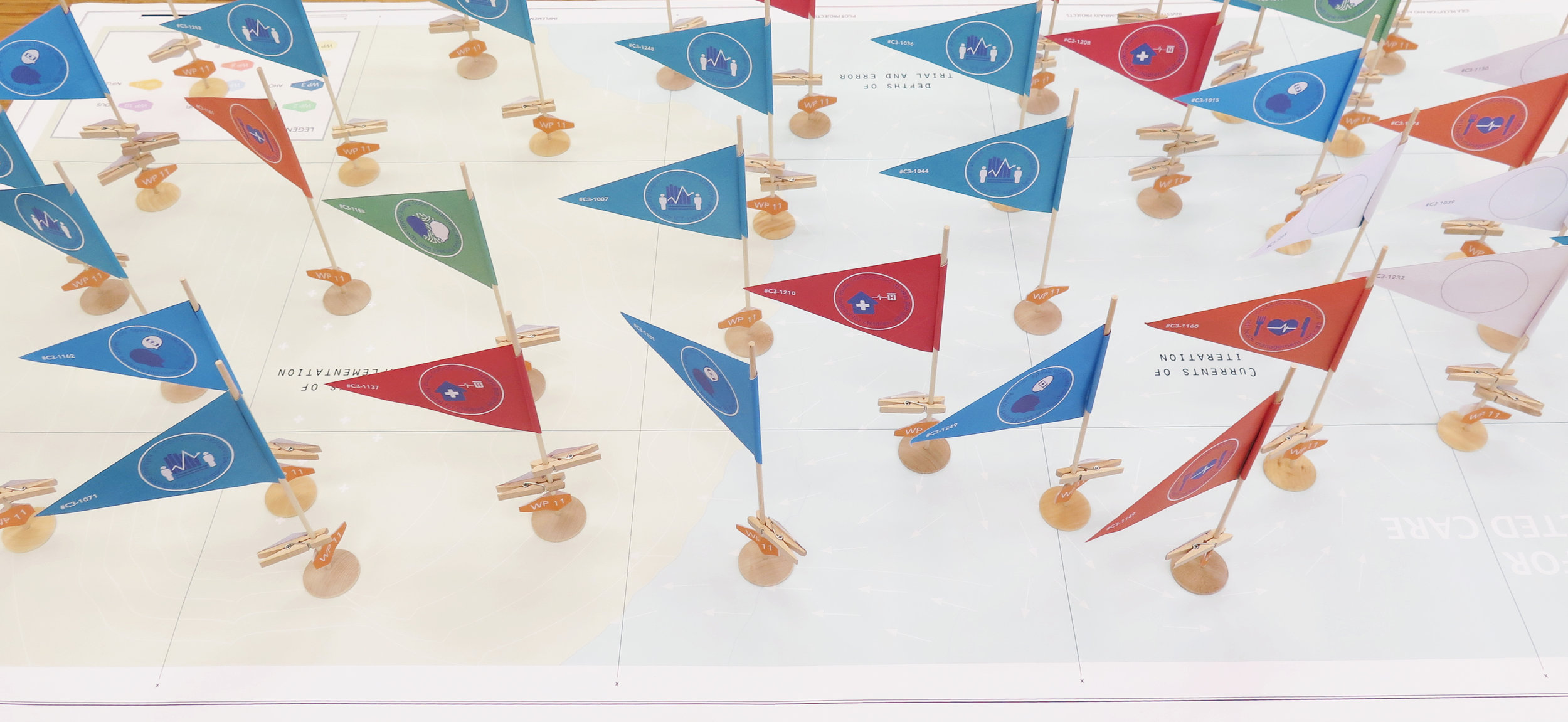Karianne Rygh The affect of form and aesthetics of tangible objects used in cross-functional co-design processes, on innovation outcomes of multi-actor collaborations delivering healthcare services
The PhD project is part of the Centre for Connected Care (C3) which aims to accelerate adoption and diffusion of patient-centric innovations that change patient pathways and delivery systems, empower the patients and increase growth in the healthcare industry. C3 is a Centre for Research-based Innovation (SFI), and supported by The Research Council of Norway. It will run for 8 years starting in Q4 2015. The main objective for the SFIs is to enhance the capability of the business sector to innovate by focusing on long-term research based on forging close alliances between research-intensive enterprises and prominent research groups.
Bridging the gap between various design disciplines in the development of services for future health encompasses a constellation of complex challenges residing in different fields. When collaborating internally and externally in private companies and public organizations, stakeholders often lack a common language, affecting the level of collaboration and exchange of knowledge between experts.
Considering aesthetics and materiality in tangible tools, to what degree can prototypes and the act of ‘making’ and prototyping within multidisciplinary collaborations contribute to a common understanding of different stakeholders’ mindsets? How can prototypes and artefacts be used at various stages of the service development process to communicate stakeholders’ expectations, goals, contributions and needs in relation to co-designing new services? Ultimately, to what extent do the aesthetics of tangible tools and artefacts influence the innovation outcomes of such multi-actor collaborations?
Institute of Design / Simon Clatworthy (Supervisor)
PhD started in 2016

